NAVISP Industry Days 2025: A Landmark Gathering for PNT Innovation
Last Updated: 17/03/2025 08:32 Created at: 12/03/2025 11:09
The NAVISP Industry Days 2025 marked our largest event to date, showcasing the growing influence and impact of the NAVISP programme. Hosted in collaboration with the UK Space Agency (UKSA) at the historic Senate House in central London, the event attracted nearly 500 participants from 20 countries representing 170 distinct institutions.
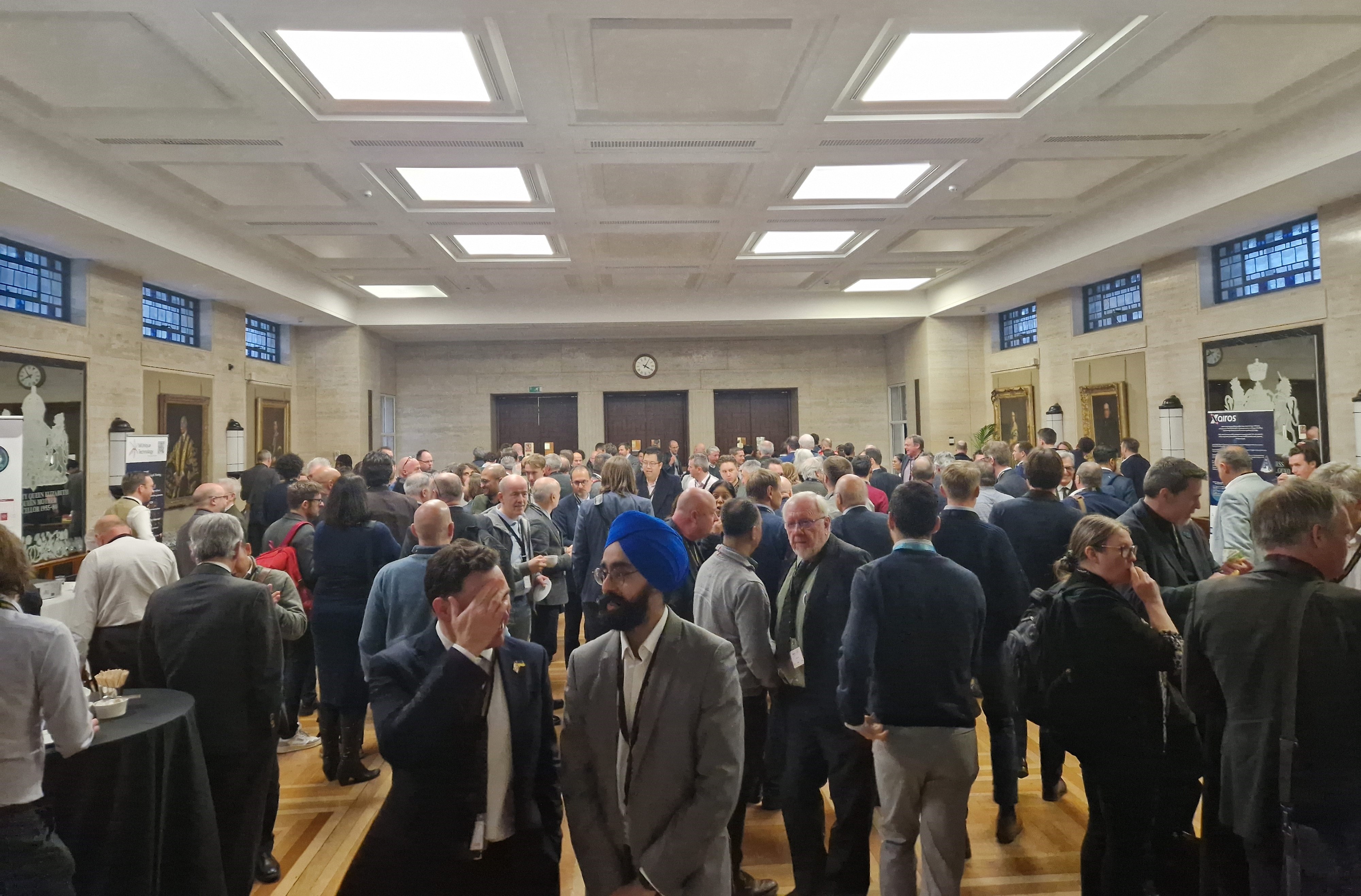
This diverse gathering brought together stakeholders from academia, research centres, national delegations, established PNT industry leaders and emerging enterprises. Both large corporations and SMEs were well represented, enriching discussions in the networking breaks and fostering the collaborative spirit that defines our community. The event also provided the perfect setting to formalize a new NAVISP activity through a contract signing with EnSilica, a UK-based leading fabless supplier of mixed-signals ASICs who will design a multi-band chip for resilient PNT.
The programme presentations on NAVISP outlined the future of the programme and plans for advancing commercial PNT to improve European gains in the Global PNT downstream market. The significant economic impact of the programme was also presented, including the creation of 1300 new jobs, the generation of 55% ROI over 10 years and increased GDP for Member States.
Key Sessions and Commercial Insights
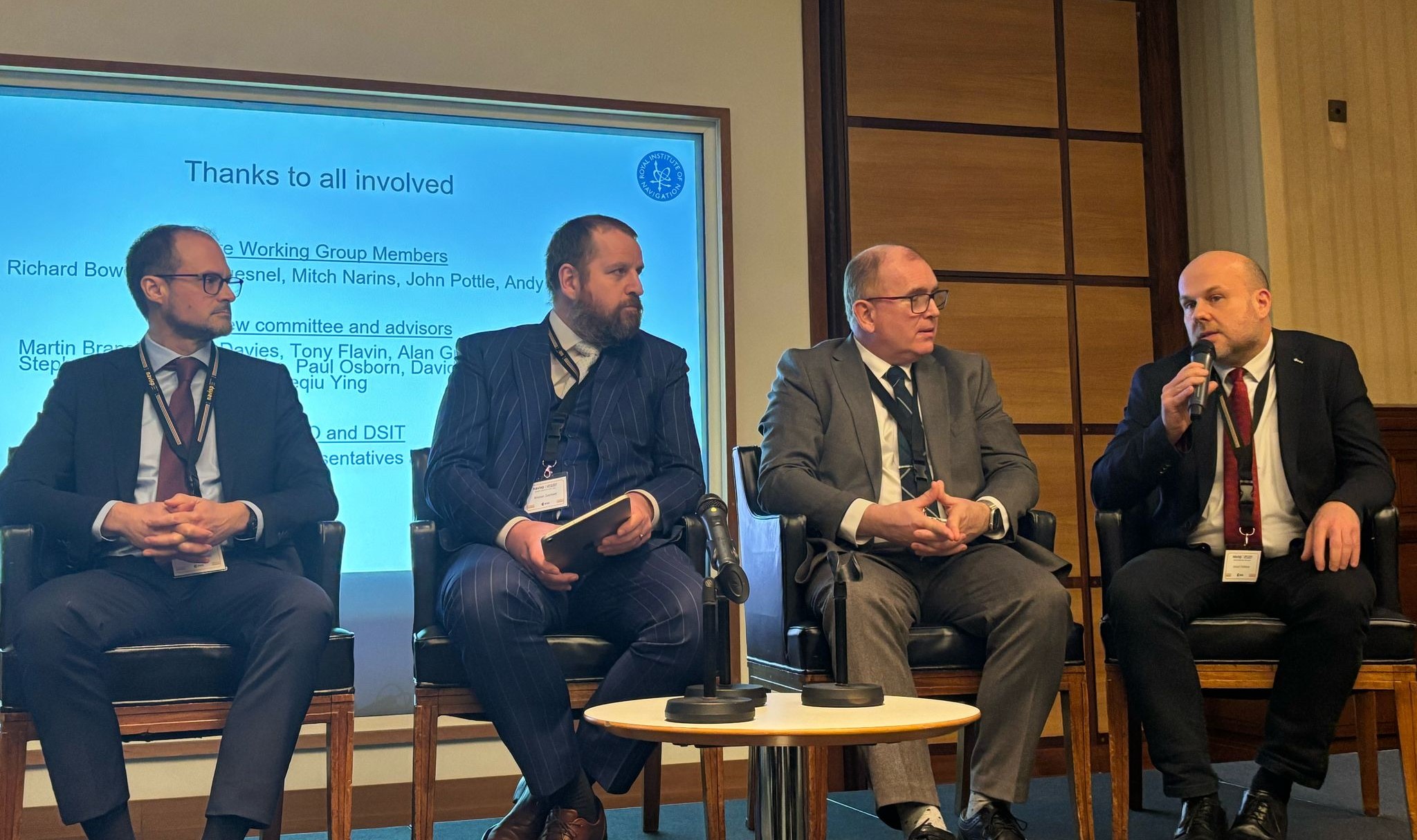
The programme featured focused sessions on critical PNT topics including resilience, mobility, alternative techniques, quantum technologies, and timing systems. Industry keynotes highlighted commercial innovation across various domains. Sandbox AQ presented exciting developments in magnetic navigation, while Volvo Cars Tech Fund emphasized PNT's significance in the automotive sector. Jaguar Land Rover explored the promising integration of PNT with artificial intelligence.
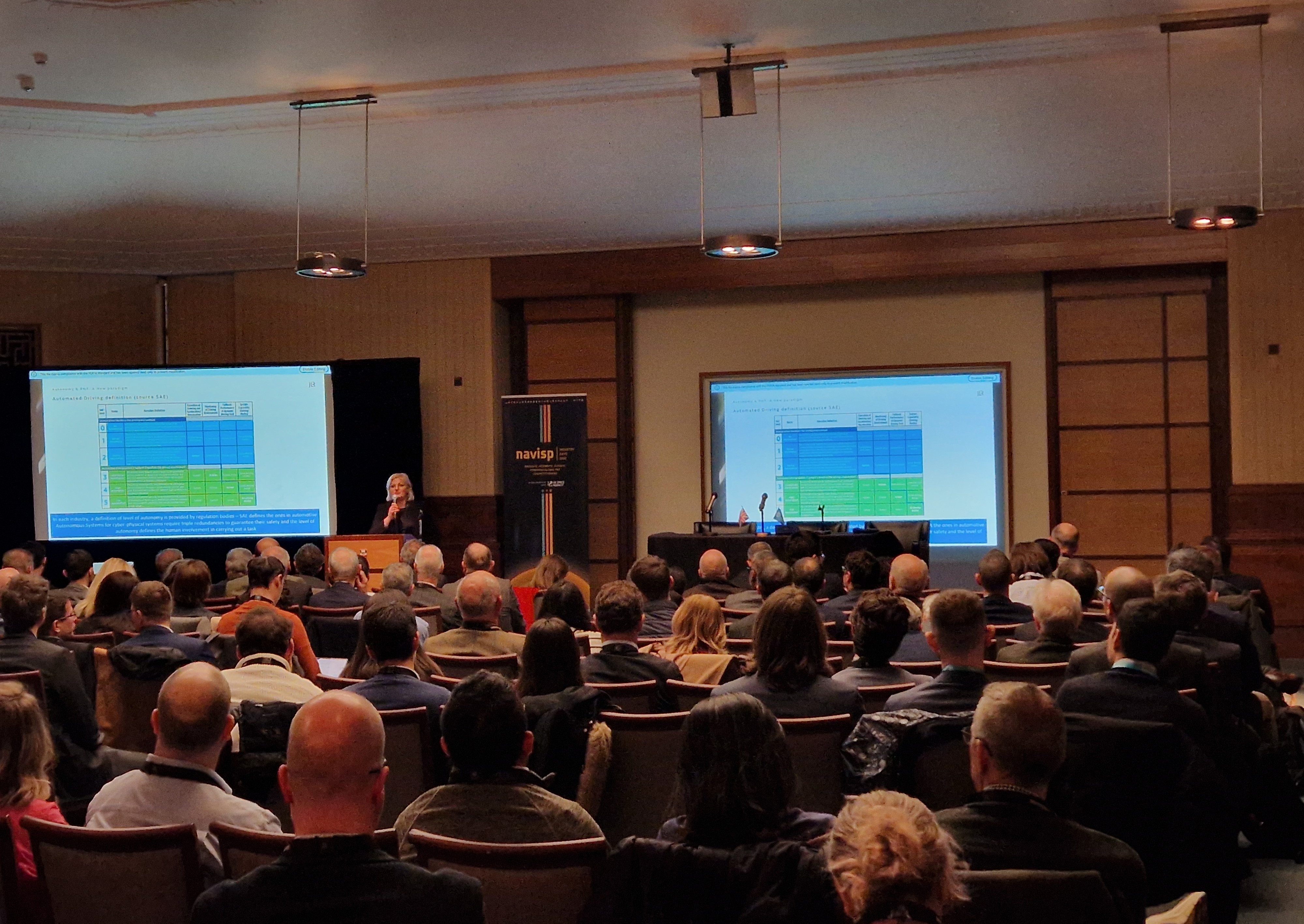
From the institutional perspective, attendees benefited from the Royal Institute of Navigation's (RIN) guidelines for resilient PNT, SAE International's insights on PNT technologies, opportunities and challenges in standardisation, and the NAVISP Advisory Committee’s forward-looking PNT Vision for 2035. A panel discussion on national strategies for resilient PNT with participation of delegates from the UK, Hungary, Norway, and Italy underscored the need for alternative technologies while demonstrating Europe's collaborative strength in this field. Through the panel discussion it became evident that GNSS vulnerability is a widespread concern, though not all countries have yet established formal guidelines for PNT resilience. The delegates agreed on the value of conducting live GNSS jamming and spoofing tests to fully comprehend their impact, an approach that resonated well with the RIN guidelines. However, caution was expressed regarding the deployment of Artificial Intelligence in critical infrastructures, as it potentially complicates the assessment of PNT vulnerabilities.
Panel Discussions and Highlights
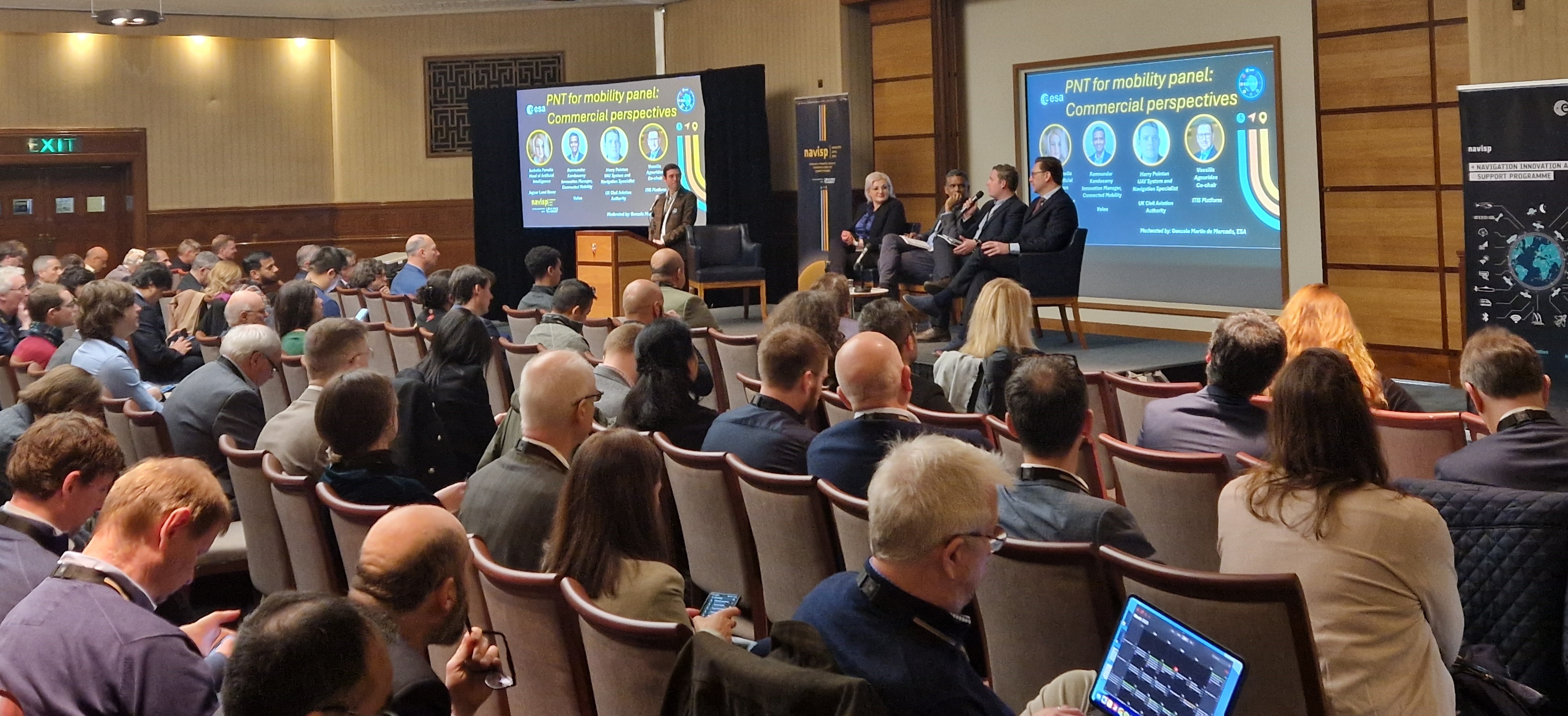
The mobility panel identified the need for developing test approaches capable of evaluating autonomous driving systems across hundreds of thousands of hours—a challenge NAVISP is already addressing through several programme-supported testbeds.
Two panels on Alternative (and Complementary) PNT discussed both terrestrial and space-based initiatives from industry, moving from the observation that Global Navigation Satellite Systems are fantastic systems delivering good accuracy with very high availability, but they are susceptible to signal disruptions and impairments and RF interference jamming and spoofing, and they have technical limitations for some applications. Industry representatives gave their precious insights on the most promising technologies under development, from eLoran, to VDES-R, from telecom satellites Signal of Opportunities to 5G, from Celestial navigation to LEO PNT.
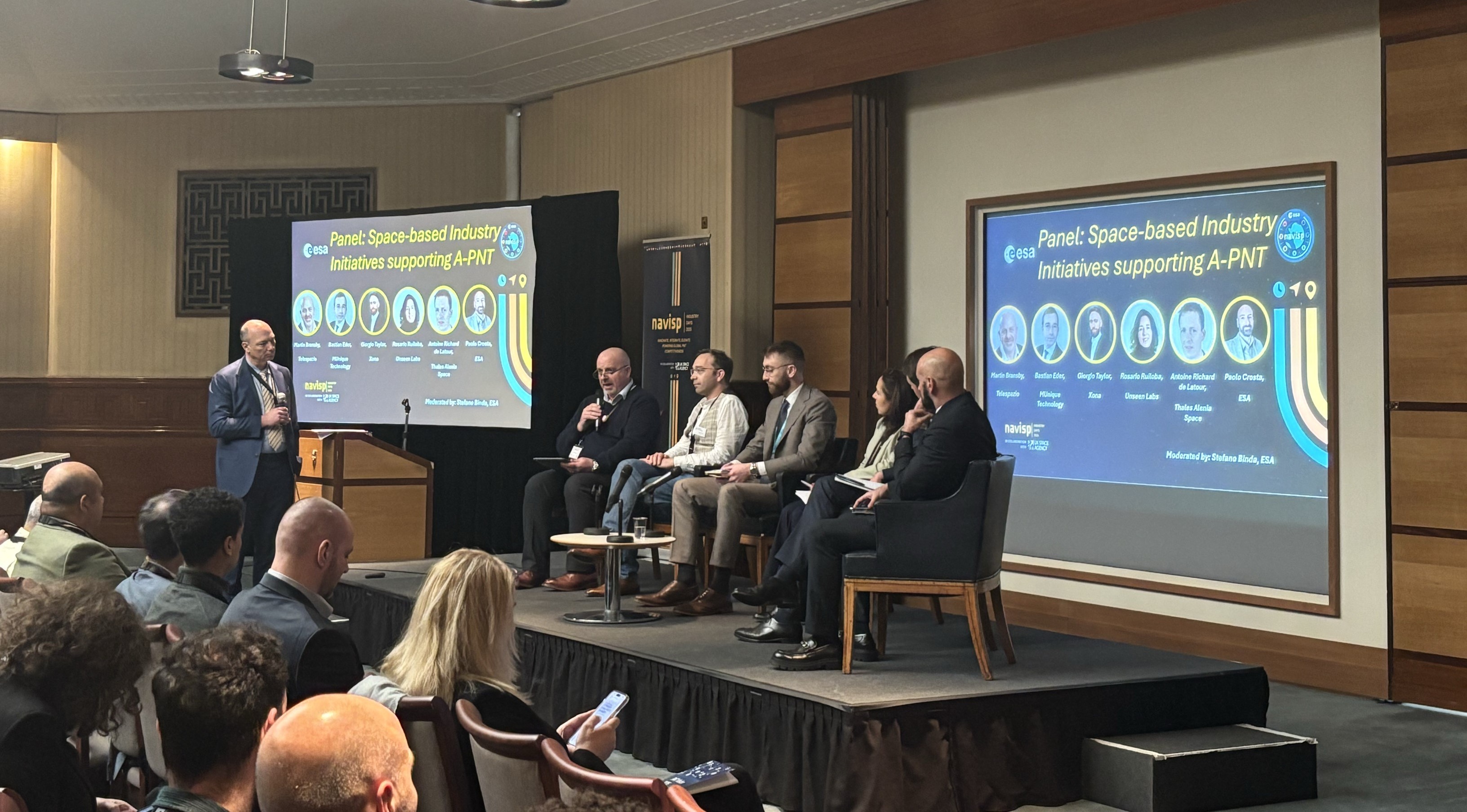
During a Fireside Chat on quantum technologies, experts Lene Oddershede from the Novo Nordisk Foundation and Roger McKinlay from Innovate UK examined the complementary roles of public and private investments in advancing quantum innovation, with particular emphasis on the development of quantum sensors for PNT applications. Two dedicated panels on clocks and time synchronization explored how various technologies, including optical clocks, will meet industry's future requirements for resilient timing. NAVISP continues to support multiple initiatives in commercial clock technology development and timing services.

Showcasing Innovation
Throughout the event, NAVISP project participants displayed poster presentations highlighting innovations supported by the programme. These displays offered attendees valuable opportunities to appreciate the breadth of ongoing initiatives during networking sessions and breaks. Posters were displayed by MUnique Technology, GMV, Superfy, Synchropal, Xairos, Provizio and Telespazio UK.
Presentations from the event can be found here.
The NAVISP Team extends our sincere gratitude to the UKSA for their invaluable collaboration. Our thanks also go to all attendees and speakers who made this event so productive. Together, we continue to strengthen the European PNT ecosystem, and we look forward to welcoming you at the next Industry Days event.
